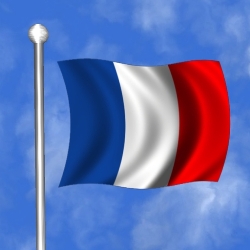WSOP.com To Face Greater Challenges Post-Shared iPoker Liquidity

The World Series of Poker (WSOP) currently operate its online poker rooms separately in the ring fenced markets of New Jersey and Nevada, in the process increasing the company’s costs whilst reducing the playing options of its customers. Nevertheless, great opportunities lie ahead for the operator after the landmark player sharing deal agreed between the country’s regulated markets is enacted later this year.
Nevertheless, WSOP.com may also find itself losing its present dominance in Nevada as it is forced into direct competition with global brands such as PokerStars and PartyPoker. As a result, Bill Rini, Head of Online Poker WSOP.com at Caesars Entertainment Corporation, is currently occupied with trying to devise a unified product that will help the WSOP to compete against industry poker giants such as these once the market is finally opened up.
Multi-State iPoker Network
Nevada, Delaware, and New Jersey launched their online poker markets in 2013, but before long it became apparent that ring-fencing their respective players did not serve the interests of a game that requires a great deal of liquidity in order to survive. In 2015, Nevada and Delaware subsequently formed a Multi-State Internet Gaming Association (MSIGA) allowing players to compete with one another across state lines, although ultimately their markets have proven too small to have a significant impact on their respective revenues and traffic.
While New Jersey still held out hope of going it alone, in 2017 it then conceded that it, too, needed a bigger player pool to draw from and so agreed to join the aforementioned multi-state agreement. The very same year, Pennsylvania became the fourth state to legalize online poker, and has indicated that it would also be prepared to join a shared network once its industry is launched.
WSOP Advantage
The poker operator most well placed to take advantage of a shared US poker network is WSOP.com, as it already holds licenses to offer its products in all three regulated states with active iPoker markets. Furthermore, the WSOP is the world’s biggest live poker brand, and since 2015 it has been enabling its players to compete for online WSOP bracelet, and more recently online WSOP Circuit rings in both New Jersey and Nevada. Bill Rini believes that the multi-state agreement will subsequently herald even bigger changes for the industry, stating:
“It’s always been our desire to allow players to compete for WSOP bracelets on WSOP.com in any jurisdiction where it’s legal to do so. That’s why the interstate liquidity-sharing agreement is such a game changer.”
888 and WSOP Partnership
Since 2015, 888poker has been the main sponsor of the WSOP live series, and so has been granted exclusive rights to provide qualifier satellites and promotions online for all WSOP tournaments. In addition, Caesars Interactive Entertainment (CIE) owns the World Series of Poker, with 888 also providing the software which helps power WSOP.com sites in Nevada and New Jersey. In Nevada, WSOP.com holds a virtual monopoly over online poker in the state with no other viable competitors available, while in Delaware, 888 runs the state’s lottery owned poker industry, meaning there exists little reason for other providers to seek entry into the market.
In New Jersey, however, WSOP NJ and 888 Poker NJ face competition from other brands, such as PokerStars and PartyPoker NJ, with the WSOP/888 teaming lagging behind their rivals in terms of online poker revenues.Helping to explain the situation is the fact PokerStars and PartyPoker are two of the best known brands in the world, with both providing excellent software, and arranging well organized tournaments to their customers both online and in the live arena.
Working in WSOP/888’s favor so far is the fact neither PokerStars or PartyPoker have operations in Nevada or Delaware. If they did, though, it is quite likely that the WSOP brand would soon lose its current advantage, and that the majority of US players would subsequently be drawn to these two sites, instead. Therefore, it is no wonder that Bill Rini is intent on establishing a unified poker network ahead of time capable of competing against the likes of PokerStars and PartyPoker because his brand will certainly have its work cut out when the multi-state agreement is eventually enacted, and the market is finally opened up to all.










